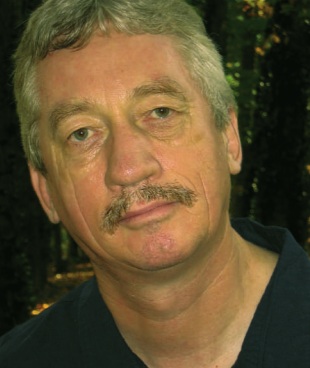Frans De Waal was born in the Netherlands in 1948. He received his training as a zoologist and ethicist from three Dutch universities, earning a PhD in biology from the University of Utrecht in 1977. De Waal moved to the United States in 1981, accepting a research position at the Wisconsin Regional Primate Research Center in Madison. In 1991, de Waal moved to the Psychology Department at Emory University in Atlanta, where he is currently a Charles Howard Candler Professor of Primate Behavior.
In 2004, De Waal received one of the most prestigious honors in the scientific community by being elected to the National Academy of Sciences. He is also the director of the Living Links Center for the Advanced Study of Ape and Human Evolution at the Yerkes Primate Research Center (YPRC), established in 1997. The YPRC of Emory University is a National Primate Research Center, which is funded by the National Institutes of Health. It is at the forefront of biomedical and behavioral studies with nonhuman primates.
De Waal has several published scientific articles and books, which include Peacemaking Among Primates, a 15-year study of conflict resolution and reconciliation among the captive chimpanzees (Pan troglodytes) of the YPRC, for which he received the Los Angeles Times Book Award. De Waal’s research has had an unquestionable effect on understanding the complexity of human social behavior and the evolution of morality in humans, as well as in other animals. His studies investigate the development and complexity of ethical behaviors and morality with results that suggest animals other than humans have an innate awareness of what is considered right or wrong.
 De Waal has also challenged the idea of human culture by showing different adaptive strategies to conflict within various communities of the same species, suggesting that other animals have the ability to evaluate the situations they are presented with rather than being completely driven by instinct. This is well demonstrated by a study of combining a juvenile group of rhesus monkeys (Macaca mulatta) and stump-tail monkeys (M. arctoides). The more aggressive rhesus monkeys learned to be more passive from interacting with the stump-tail monkeys, which dominated the group. The two species became friends, interacting and grooming on a much less aggressive level than is usual for the rhesus monkey. De Waal is also interested in food sharing and social reciprocity.
De Waal has also challenged the idea of human culture by showing different adaptive strategies to conflict within various communities of the same species, suggesting that other animals have the ability to evaluate the situations they are presented with rather than being completely driven by instinct. This is well demonstrated by a study of combining a juvenile group of rhesus monkeys (Macaca mulatta) and stump-tail monkeys (M. arctoides). The more aggressive rhesus monkeys learned to be more passive from interacting with the stump-tail monkeys, which dominated the group. The two species became friends, interacting and grooming on a much less aggressive level than is usual for the rhesus monkey. De Waal is also interested in food sharing and social reciprocity.
While De Waal is best known for his behavioral research and theories on the origins of morality, the recognition of right and wrong in humans and other animals, he has also helped to shed light on the fascinating lives of bonobos (Pan paniscus). The bonobo is the chimpanzee’s lesser-known, yet seriously endangered, counterpart. Although there are several international experts on the bonobo, de Waal and photographer Frans Lanting have published the most comprehensive study of bonobos to date.
De Waal continues his research in Atlanta but has also traveled the world in order to make cultural reflections on the nature of humans and nonhuman primates in other cultures. He has been funded by such esteemed organizations as the National Science Foundation, the National Geographic Society, the National Institutes of Mental Health, the National Institutes of Health, and the Wisconsin Regional Primate Research Center in Madison.
References:
- De Waal, F. (1989). Peacemaking among primates. Cambridge, MA: Harvard University Press.
- De Waal, F. (1996). Good natured: The origins of right and wrong in humans and other animals.
- Cambridge, MA: Harvard University Press.
- De Waal, F. (1997). Bonobo, the forgotten ape. Berkeley: University of California Press.
- De Waal, F. (2000). Chimpanzee politics: Power and sex among apes. Baltimore: Johns Hopkins University Press.
- De Waal, F. (2001). The ape and the sushi master, cultural reflections of a primatologist. New York: Basic Books.
- De Waal, F. (2002). Tree of origin: What primate behavior can tell us about human social evolution. Cambridge, MA: Harvard University Press.
- De Waal, F. (2003). My family album: Thirty years of primate photography. Berkeley: University of California Press.

